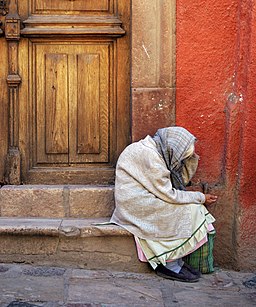(Note: An expanded version of this essay—which attempts to address some of the objections leveled in the comments below as well as at The American Conservative—is over at On Faith.)
I am angry, and so I hope you will forgive me for whatever I write that offends, unless you need offending, in which case I hope you receive it in love.
I am angry at the people who, having sponsored children through World Vision, having developed relationships with these little ones who now depend on them, would so easily threaten to walk away. I am angry, as well, at self-professing Christians who imagine, with neither humility nor understanding, that their novel interpretation of the Bible is grounds for forcing the rest of Christendom to come along with them on their journey into apostasy.
“Truly I tell you, whatever you did for one of the least of these brothers and sisters of mine, you did for me.”
Those of you who were outraged by World Vision’s state-pressured recognition of same-sex marriages, would you turn your backs on the little girl in danger of being sold into sex slavery in Thailand, the little boy in Haiti whose mother cannot feed him, for a point of dogmatic purity in an organization which is not the Church?
Do you demand the same purity of the sports teams you root for, of the stores where you buy your comfortable clothes, of the grocery stores where you buy your steaks?
Do you think the Church so weak that it needs affirmation from the Human Resources department of World Vision to maintain what was instituted by God?
The world heads deeper into sickness, and sometimes people who call themselves Christians are leading the way. For them we pray, not because the Church is endangered, not because marriage is endangered, but because their souls are endangered. Cutting off funds to poor and defenseless children will not save one soul. So on what grounds will you justify it, when your own day of judgment comes?
And to those of you who bathe yourselves in righteous indignation at World Vision’s reversal, who believe that your personal revelations outweigh centuries of Church tradition and teaching, who haven’t the slightest charity towards your brothers and sisters, casting our refusal to embrace your beliefs as evidence of hatred in our hearts—and thereby, conveniently and cheaply, a superior love within your own—shame on you.
“Therefore let us not judge one another anymore,” writes the apostle Paul, “but rather resolve this, not to put a stumbling block or a cause to fall in our brother’s way.”
You lay down stumbling blocks at every turn. You do it despite believing that any building with a cross and a preacher is a church, which means that you have the freedom to start whatever churches you like, and establish whatever ceremonies you choose, and call these marriages, and declare that God smiles on them. Your beliefs give you the freedom to worship God however you see fit, but this does not content you, because you need the rest of Christendom to agree with you. You would make your brother choke down the idol’s food, and call him unchristian if he does not. You derive your righteousness from pointing out the mote in his eye.
Some would defund poor children to make a dogmatic point; you would risk that funding to make your own. You decry the actions of your brethren when you are no better.
The Church has withstood apostates from the beginning. It has withstood politics, Muslim invasions, totalitarian oppression, even the malaise and indifference of Western modernism. It will endure, long after the current heretics have been replaced by more outrageous heretics. It will endure even as a thousand counterfeits spring up, ten thousand false teachings, a hundred thousand false prophets, a million impersonators of Christ. The Church does not veer into apostasy, apostates veer away from the Church.
And for them we should pray. We should pray for them, and perhaps they can pray for us, and maybe we can even talk about our differences—with each other, rather than to outsiders who look on our strife with pleasure. Maybe, even, we can speak truth to one another in love.
“By this everyone will know that you are my disciples, if you love one another.”
Tell me, are any of us doing this very well? I’m certainly not. I could spend the remainder of my life trying to get this right. How about you?









